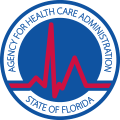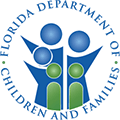Understanding Depression in Seniors
Learn More About Depression in the Elderly
Depression is a very common mental disorder, impacting the lives of over 34 million people of all ages in the United States each year. In older adults, many of the symptoms of depression may go overlooked and untreated as they overlap with stressful life events or physical disorders that accompany advancing age. Late-onset depression is a form of depression that is experienced for the first time in a person over the age of 65. Depression is not to be considered a normal part of the aging process and should always be treated promptly as it can lead to increased disabilities and mortality among older individuals.
Late-life depression is simultaneously underdiagnosed and undertreated as other factors may be masked by chronic ailments, the stigma of depression, social isolation, cognitive impairment, and recent bereavements. Untreated late-life depression can lead to decreased quality of life, decrease in ability to perform self-care activities, less social interactions, and increased health care needs.
Family and loved ones should be vigilant in observing signs of depression in their loved ones and any clues that may point to depression should be immediately assessed. Serious depression can increase symptoms of other medical illnesses and may lead to premature death or suicide. Many times, people assume that some of the signs of late-life depression are related to dementia and the symptoms may be so severe and disabling that an older adult may not be able to properly verbalize their distress and seek the help they so require.
If left untreated, the effects of depression can lead to increased impairment and loss of functioning. Depression, fortunately, is one of the most successfully treated illnesses. When properly diagnosed and treatment approaches work, over 80% of older adults are able to recover and return to their lives a happy, productive member of their community. At North Tampa, we’ve had much experience helping older individuals successfully recover from depression and go on to lead joyful lives.
Statistics
Statistics on Geriatric Depression
Depression is very common among older adults; over 2 million of the 34 million adults over the age of 65 in the United States struggle with some form of depression. While this disorder has a wide impact, unfortunately many older adults do not know about late-life depression and consider it to be a normal part of aging and not a legitimate health concern.
Causes
What are the Causes and Risk Factors of Geriatric Depression?
The root cause for the development of late-life depression is generally thought to be a conglomeration of a number of factors and potential causes working together. Some of the most common causes and risk factors for late-life depression may include:
Genetic: Research has provided evidence that there is a genetic predisposition toward depression in people of all ages. People who have relatives who struggle with depression are more likely to develop the disorder than those without similar family histories.
Physical: Late-onset depression may be triggered by illnesses associated with a later-life onset such as cancer, heart disease, Parkinson’s disease, and arthritis. Additionally, people who have imbalances of certain neurotransmitters in the brain may be more prone to develop depression at all ages. People who have had a history of depressive episodes in their earlier years are at greater risk for developing depression in later life.
Environmental: The stresses of later life, such as the death of a long-time partner and friends, may trigger late-onset depression in certain individuals. Additionally, people who struggle with late-life depression may be socially isolated due to disability and loss of long-term friendships. Financial troubles and concerns may contribute to the development of late-life depression.
Risk Factors:
- Delayed grieving
- Being female
- Advancing age
- Polypharmacy
Signs and Symptoms
Learn More About the Signs and Symptoms of Geriatric Depression
The symptoms of late-life depression often vary from the symptoms experienced with depression at other ages. The signs and symptoms of late-life depression can be debilitating and even – at some points – life-threatening. It’s important that if you or someone you love is experiencing the following symptoms for longer than 2 weeks, to seek professional help.
Behavioral symptoms:
- Withdrawal from once-pleasurable activities
- Socially withdrawing from enjoyed gatherings
- Preferring to be left alone
- Pacing or fidgeting
- Extreme fearfulness
- Decreased ability to care for self
Physical symptoms:
- Significant change in appetite or weight
- Physical pains without any discernible reason
- Gastrointestinal symptoms
- Headaches
- Multiple diffuse symptoms
- Insomnia or hypersomnia
- Fatigue or reduction in energy
- Changes in the structure and functioning of the brain
Cognitive symptoms:
- Thoughts of death or suicide
- Decreased ability to think
- Indecisiveness
- Increased memory problems and loss
Psychosocial symptoms:
- Feeling sad
- Increased irritability
- Agitation
- Anxiety
- Anger
- Feeling hopeless
- Increased anxiety
- Inappropriate feelings of guilt
Effects
Understanding the Effects of Geriatric Depression
Older adults may be less prone to seek treatment for psychiatric illnesses such as late-life depression. Left untreated or undiagnosed, individuals who have late-life depression may be at greater risk for developing chronic effects of the disorder. These chronic effects of late-life depression may include:
- Worsening of emotional well-being
- Worsening of chronic physical complaints
- Increased morbidity
- Disability
- Significant distress
- Substance abuse
- Medical complications
- Suicidal thoughts and behaviors
Co-Occurring Disorders
Geriatric Depression and other Co-Occurring Disorders
Depression in the elderly often coincides with other mental disorders. Some of the most common disorders that co-occur with late-life depression include:
- Anxiety disorders
- Personality disorders
- Chronic medical conditions
- Schizophrenia
- Cerebrovascular disease











